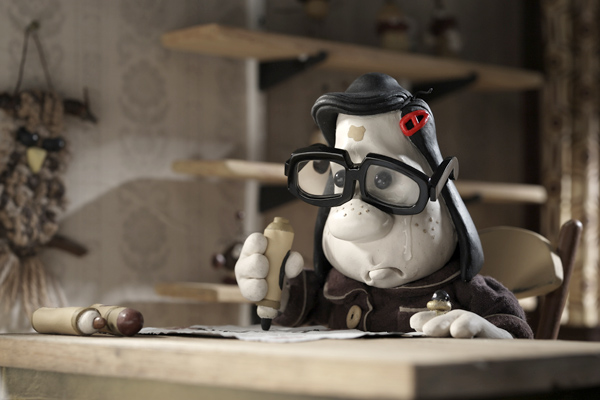|
Reviews of Recent Independent, Foreign, & Documentary Films in Theaters and DVD/Home Video

MARY AND MAX There was a lot to love about “Harvie Krumpet,” the 2006 short that launched Adam Elliot’s career. It had a sharp mix of humor and pathos, a compelling hero (a Polish nudist with Tourette’s), and, most importantly, it moved at a blistering pace, conveying Harvie’s entire life in a ruthlessly edited 20 minutes. His new work, Mary and Max, about the 20-year pen-pal friendship between a lonely Australian and a New York City shut-in, stretches that style out to feature length to somewhat mixed results. The sense of childish wonder is still there, as are the achingly abrupt detours into themes of death, mental illness, and suicide, but Elliot doesn’t dig any deeper than he did in his short. Instead, we get comic set pieces that spinoff into pointless and, worse, unfunny digressions. Grand life lessons stomp in and out of the film to no noticeable effect. With the exception of a bravura song sequence towards the end, Elliot seems uncomfortable taking a slower look at the world he’s created. As a result, the film feels both padded and under drawn. The Claymation doesn’t help. Large studio productions like Henry Selick’s Coraline have spoiled moviegoers’ expectations, and more personal productions like Max and Mary suffer by comparison. Even surrounded by an overwhelming number of quirks, the characters seem lifeless. Set in clay, their expressions rarely change. Part of that is down to Max’s Asperger’s, but when the psychologically afflicted characters don’t seem any less expressive than the rest of the world, it’s probably a bad sign. And when a six-foot, 350-pound overeater doesn’t come off as particularly large, it’s an even worse sign. Another financial compromise is the film’s almost total rejection of synchronized speech. Toni Collette and a vocally unrecognizable Philip Seymour Hoffman both liven up the soundtrack, but their performances are largely limited to voice-over narration of Max and Mary’s letters to each other. Actual character-to-character dialogue is frustratingly rare. Heavy narration and an unusually memorable score fill in some of the emotional gaps, but there’s still quite a lot missing. At its best—most of which comes in
the movie’s surprisingly dark final act—Max and Mary comes close
to overcoming all of that through a strange alchemy of bleakness and
cartoonish melodrama that doesn’t pop up nearly often enough. Elliot
really does have something to say, something about loneliness and the
haphazardness of human life. He just hasn’t said it yet. Russell
Brandom
|

